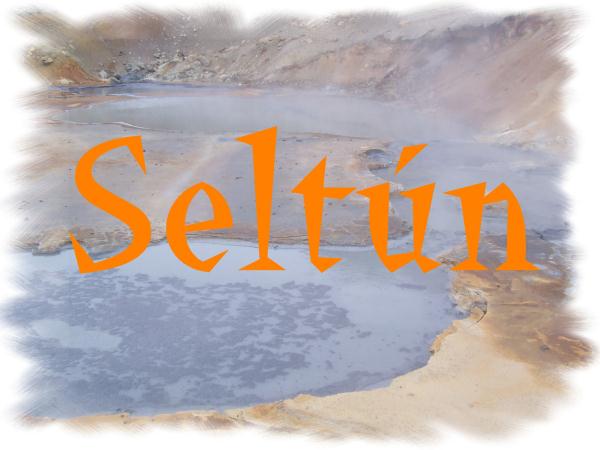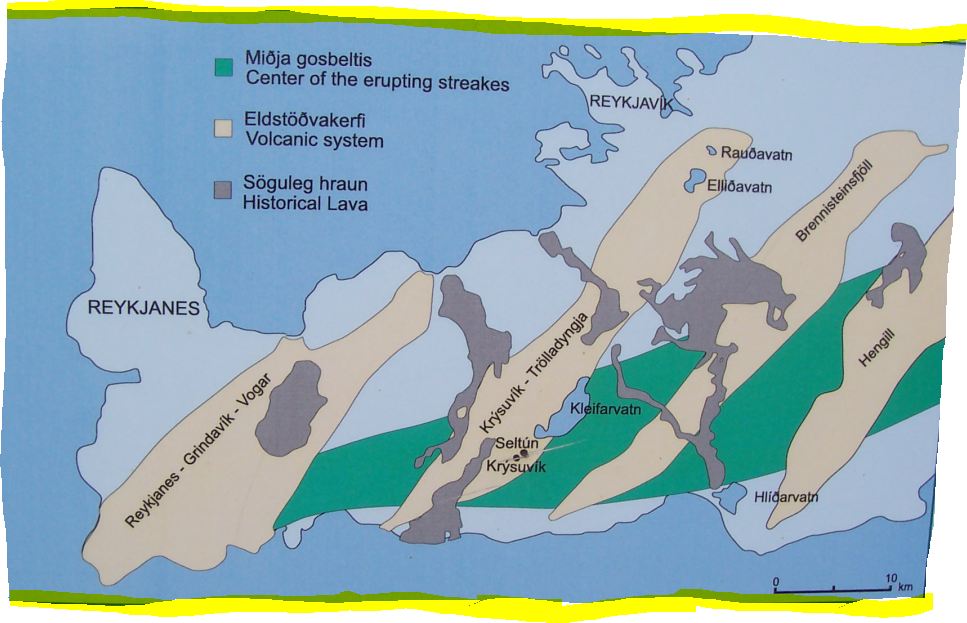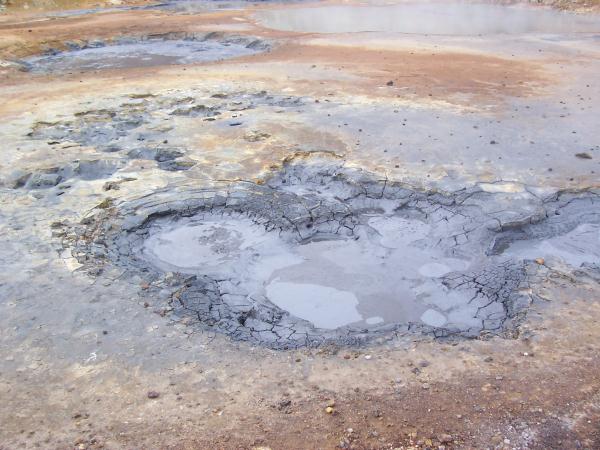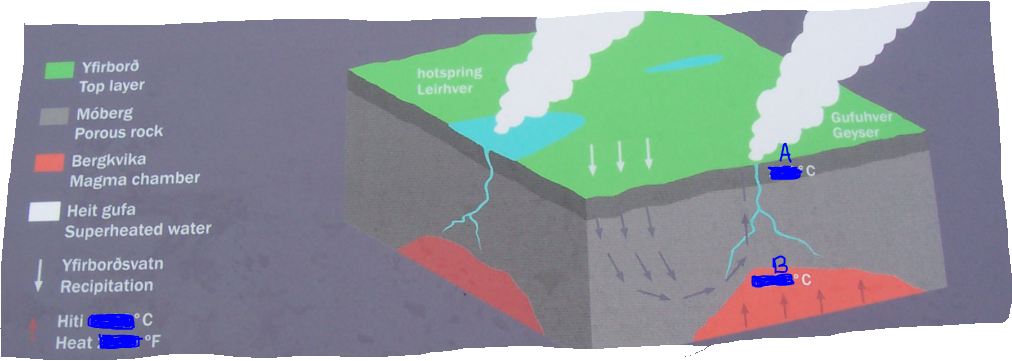
Seltún is a hot spring area located at the
Reykjarnes country park. This park lies along the middle of the
vulcanic zone, that runs the lenght of Reykjarnes peninsula. Some
of the greatest volcanic activity in this zone occurs in its
southern reaches, where several high-temperature areas exist, i.e.
areas with temperatures of over 200°C found less than 1000m
underground.

The mud pools and streams at Seltún hot
springs are constanly changing. For instance, a large mud pool
formed when the Queen´s hole (Drottningarhola) blew up in late
1999. The stream here is composed of various gases including
hydrogen sulphide, the gas that many recognise from hot springs.
Sulphur compounds in the stream make the hot water too acid for
plants to grow. By the stream vents, considerable sulphur may be
deposited.

Hot spring geology
Cool ground water seeps down to where it is
heated up by magma or a magmatic intrusion. On the way up to the
surface again, the hot water dissolves various substances in the
rock. At it nears surface level the water begins to boil and
releases hot spring gases, above all carbone dioxide, hydrogen and
hydrogen sulphide - the source of a typical hot spring smell.
Sulphur forms at stream vents as the hydrogen sulphide meets air.
Where the gases rise to surface water, sulphuric acid is produced
an increases water acidity. The acidic water dissolves rock,
resulting in the clay that characterices mud pools and their
surroundings. Besides sulphur and clay minerales, various salts -
generally white or yellowish in colour - are deposited by stream
vents. Gradually the sulphur reacts, with oxygen and water for
gipsum.

Hot sping birds
Icelanders used to believe in hot spring bird;
these were supposed to dive into a bubble of the boiling water when
anybody came close. The scholars Eggert Olafsson and Bjarni Palsson
attempted to find such bird while on their 18th-century research
expedition, but found none and thus entered in their
journal:
Few icelanders believe that these are actual
birds, although some feel that they are purely imaginary, or
deception due to the accidential appereances of the stream over
water. Other think such birds are ghosts. Finally,a few people,
most elderly, consider these birds to be the souls of dead people
that take on these appereance.

To log
this Earthcache, mail me the answers of following
tasks:
(Answer to 1.
and 2. you will find on the
infoboards)
1. For the manufacture of which "thing"
was the sulphur in earlier times
exported?
2. Find the temperatures of the info-table which I have
blackened! Which temperatur is A and which is
B?
3. Describe the smell of the hot mud pools in short
words!
4. How do you think, one of
these Hot spring birds look like. Paint a picture and post it in
your log.
5. It would be nice, if you can make a
photo of you or your GPS at Seltún and post it in your
log!
Please enjoy your visit
at Seltún!
Happy
caching!

